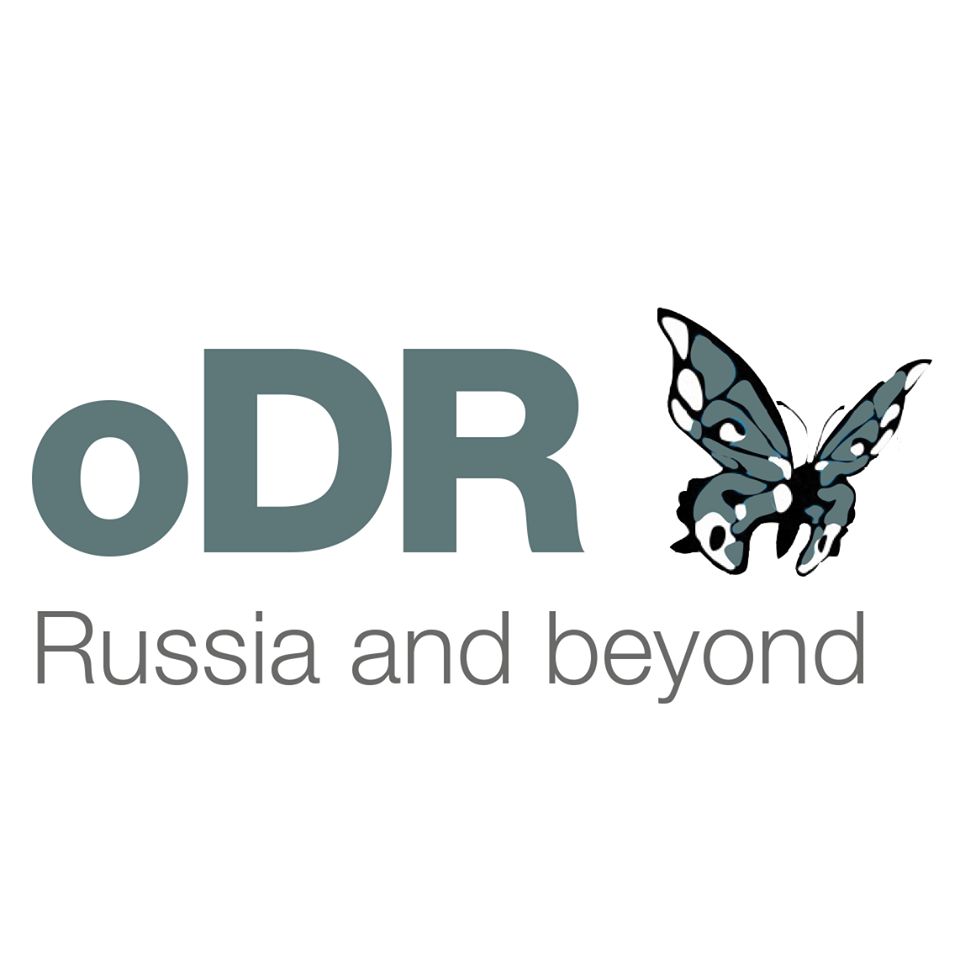
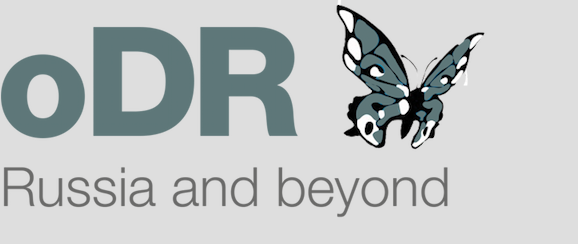 The prosecution of a Chechen human rights campaigner is a landmark step in the systematic elimination of civil society under Ramzan Kadyrov.
The prosecution of a Chechen human rights campaigner is a landmark step in the systematic elimination of civil society under Ramzan Kadyrov.
The whole world knows Ramzan Kadyrov as an effective and decisive defender of human rights, who supports all human rights-oriented institutions in Chechnya... Among those behind the situation that has led to sanctions and the blocking of the Head of the Chechen Republic’s social media accounts are rights defenders working in various ‘centres’ and ‘committees’, as well as ‘journalists’ from the most unscrupulous media who win ‘prestigious prizes’ and ’30 pieces of silver’ in Washington and other western countries for their anti-Russian subversive activities… I think it’s time to dispatch our enemies back to their bosses abroad or remove them from healthy society. If there weren’t a moratorium at present in Russia, it would be Salaam Alaikum to the enemies of the people and that would be the end of it.
This is an extract from a statement made in late 2017 by Magomed Daudov, the head of Chechnya’s parliament, one of the most influential people in the republic and Ramzan Kadyrov’s right hand man.
Daudov’s call did not go unheard: on the first working day of 2018, police officers arrested Oyub Titiyev, head of the Grozny branch of the Memorial Human Rights Centre.
208 grammes of pure lies
On 9 January, the weather in Grozny was miserable: an overcast morning turned into rain and wet snow that continued into the night. It was the first working day after the New Year celebrations, and people wrapped themselves up in scarves before setting out for work.
Oyub Titiyev set off for Grozny early. Despite the forecast, Titiyev, who is used to tidiness, cleaned his car inside and out in the yard of his house in the village of Kurchaloy. He left home at about nine o’clock: he had to meet a friend first and then go to the Grozny office of Memorial, which he has headed since 2010.
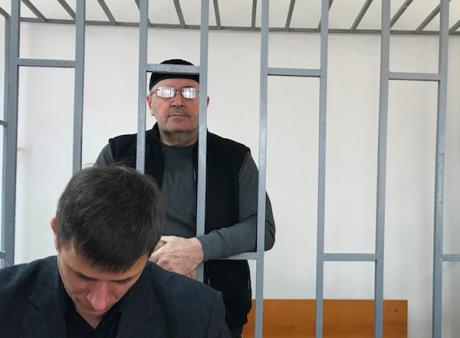
Titiyev planned to arrive at his office at about 11am, but he hasn’t been at work since that morning. Indeed, he hasn’t been at home or free to go anywhere. As soon as Titiyev left his home, he was stopped by police officers who asked him to show his ID and open the boot of his car, and then they ‘unexpectedly’ found a package of marijuana weighing 208 grammes under his passenger seat.
The story of Oyub Titiyev’s arrest has been covered in the press extensively. There is absolutely no doubt that the drugs were planted in the car, and that this was done to discredit not only Oyub Titiyev personally but the Memorial organisation in general. The Human Rights Centre is active in the North Caucasus; it’s the only international NGO with an office in Grozny.
Two days after Oyub Titiyev was arrested, Shalinsk city court remanded him in custody for two months, and on 6 March the Staropromyslovsky district court extended his remand for a further two months. Appeals by lawyers, intercession on behalf of various bodies, not to mention statements by Titiyev himself and blunders by the prosecution were ignored by both the trial and appeal courts.
In the few weeks since Titiyev’s arrest, Memorial has been subject to a number of attacks: its office in Ingushetia has been burned down; its staff members in Daghestan have been plagued by letters and phone calls threatening physical harm. The Daghestan office driver’s car has been set alight. Oyub’s lawyer and friends have been harassed in Chechnya. The NGO’s office in Grozny was also searched and drugs were found planted on their balcony. Titiyev’s close colleagues and family have had to flee the country.
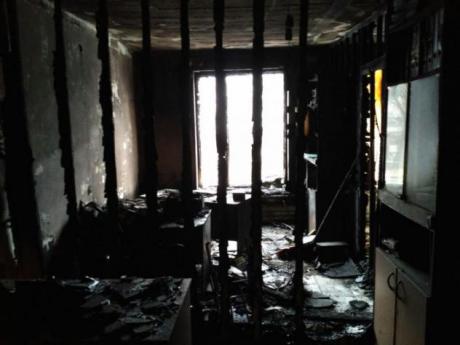
It is not just independent Russian and international human rights campaigners who have sprung to Oyub Titiyev’s defence: even Mikhail Fedotov, the head of the Russian Presidential Council on Human Rights, has joined in deploring his arrest. Human rights ombudsperson Tatyana Moskalova practically declared her lack of trust in Chechnya’s judicial authorities and asked for Titiyev’s case to be tried outside the republic. The Memorial organisation, meanwhile, has added him to its list of political prisoners.
But every attempt to defend Titiyev in Chechnya has had the same response from the one person who decides the fate of all Chechens — the republic’s head Ramzan Kadyrov:
They say that the police have caught a junkie with hashish on him. The UN, and even the US State Department, are up in arms about the arrest of one person from the Kurchaloy district. The police have caught thousands of addicts in Chechnya and no one has given a squeak, but this particular junkie got himself arrested and the whole world noticed. Why haven’t they defended the rights of other addicts? What’s the difference… Surely he could smoke if he wanted to? We arrest people of 60, 70 years old who use drugs. Can’t we arrest him? Of course we can.
These words belongs to Ramzan Kadyrov. In his speech on 17 January, Kadyrov didn’t only express his opinion of Titiyev (without mentioning him by name), but predicted the fate of all human rights campaigners: ‘They have no family, no nation, no religion… all they have is a common interest. I am amazed that a person who considers himself a Chechen can work with them. And I’m also amazed that his family don’t stop him. They should know that their work won’t pass in our republic.’
First they throw eggs: what will be next?
Oyub Titiyev became head of Memorial’s Chechen team at a difficult moment. His predecessor was Natalya Estemirova, who was abducted from her apartment in Grozny in July 2009, driven to Ingushetia and murdered. Titiyev was then working in Memorial’s office in Gudermes, Chechnya’s second largest town, about 35km east of Grozny, and he was offered her job.
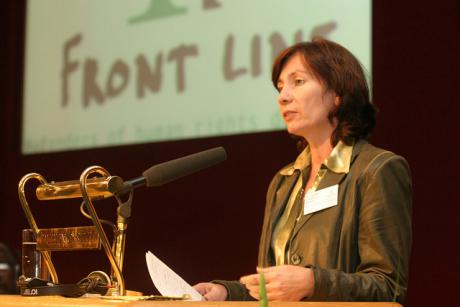
‘When Natasha was killed, there was a big question mark over who should be her successor’, says an ex-colleague at Memorial’s Grozny office. ‘It was an important position, and they tried a few people out before Oyub agreed to take the job. He was a rather stiff person, very calm; he kept his distance from other people and it took us a while to get used to him. But when we started travelling around with him on work trips, we started getting to know him better. He is the kind of person who puts his work above a lot of other things in life. He has a heightened sense of responsibility for his colleagues and has always tried to keep us safe. He never spared himself, worked calmly and quietly and in general didn’t waste words — just got on with it, whatever was happening.’
The clouds around Memorial started to thicken as the years passed. ‘In 2014, some thugs in masks broke into the Gudermes office and threw eggs at the people working there’, a former colleague of Titiyev tells me. ‘There were generally a lot of attacks on human rights campaigners working in Chechnya at that time, and the Committee against Torture NGO [headed by Igor Kalyapin] was forced out of the republic. It was a sign that things were getting dangerous. First it’s eggs, but then what? All these women had family members. And in Chechnya, it’s never just a single person that gets hurt – your family isn’t safe either. We are not just responsible for ourselves, you understand. So we decided to close the Gudermes office.’
From the start, Oyub showed himself to be a very experienced operator in his field. ‘He started by passing Natasha [Estemirova] information about war crimes, doing anonymous monitoring. He did this for free, as a civic duty. It was a difficult time, but he went on doing it. He wasn’t afraid of anyone. At that point, disseminating information – telling people what was going on during the second military campaign — was one of the most important things you could do for Chechnya. They were murdering innocent civilians, while claiming to be killing terrorists. Everything was carefully hushed up. Without the help of people like Oyub, a lot of stuff would still not have come to light.’
Oyub had continual problems, although he didn’t talk about them much. At one point, his family was evacuated abroad, but they couldn’t live outside Chechnya and returned home. Oyub kept receiving warnings, hints that he’d do well to leave his work and leave the republic. Both he and his colleagues were kept under surveillance.
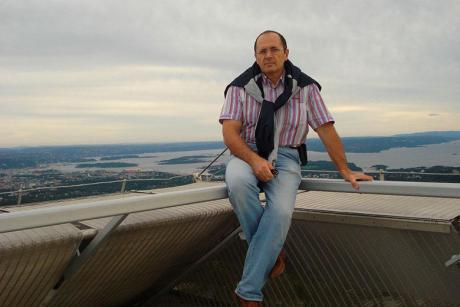
‘He was always prepared for the worst’, says his colleague. ‘He realised that anything could happen to him at any moment. I think he was psychologically prepared for arrest and prison. In Chechnya, nobody believes the police story’s about drugs. The government has its own fan club, of course, who pretend to believe the official line. But our main source of information isn’t the TV or the pro-government press. It’s Grozny market. Ask anybody there what they think about Oyub — they’ll all tell you he was arrested because he wouldn’t get along with the local administration.”
The elimination of the undesirables
Oyub Titiyev’s detention is just one link in a chain of arrests of people who disagreed with the Chechen authorities’ actions. In April 2016, Zhalavdi Geriyev, a young journalist working for the Caucasian Knot online news site was kidnapped, tortured and then arrested. He was in a minibus on his way to the airport, due to fly to Moscow and with nothing on him but a small backpack, when he was dragged out of the bus under the eyes of the other passengers and driven off to an unknown destination. The police later claimed that his arrest was accidental — supposedly he was caught smoking hashish in a Grozny cemetery.
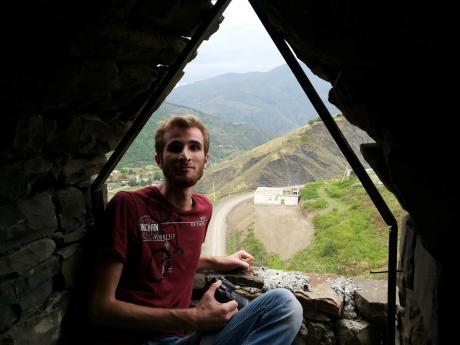
In September 2016, Geriyev was sentenced to three years in a prison colony, convicted of possession of a particularly large quantity of narcotics. Oyub Titiyev will be tried for the same crime 18 months later. The supposed proof of Geriyev’s guilt was the packet of marijuana found in either his backpack or his flat — the investigators came up with both explanations at various times — and the weight of the packet was suspiciously similar to the one being used to incriminate Titiyev.
Geriyev’s defence team appealed to every possible body and lodged a complaint with the European Court of Human Rights (ECHR), but to no avail. Zhalavdi Geriyev, who has been recognised as a political prisoner, is currently serving his sentence in a prison colony in Chernokozovo.
In December 2017, another Chechen political prisoner, the head of the Caucasus Peoples’ Assembly Ruslan Kutayev, was released from the same prison after serving three years and ten months. Kutayev was convicted under the same article of the Criminal Code, but charged with possession of a different drug. In 2014, when he was arrested, heroin was the substance of choice for planting on undesirables. Three grammes of the stuff were found on him, a sufficient quantity for a more serious charge, hence the longer sentence. Kutayev was arrested on the day after he chaired a round table that discussed whether or not to move the celebration of Fatherland Defender’s Day from 23 February to 10 May, 23 February being a day of mourning for Chechens in memory of their mass deportation to Central Asia on that date in 1944. At such discussions, Kutayev always reminded participants of this tragedy, despite the Chechen government’s ban on discussing it.
Kutayev is now living on probation in Ivanovo, a Russian city northeast of Moscow and the place where he is officially registered, and will be required to remain there for a year after his release from jail. Afterwards, he plans to return to Chechnya and continue his activities there.
Kutayev knows Oyub Titiyev to be a principled and honest person, but holds little hope that the judicial system of which himself has been a victim will act differently in Titiyev’s case. ‘I am pretty sure that Oyub’s defence will get nowhere’, he tells me. ‘The judges will carry out their instructions. Putin gave the Chechen government carte blanche to do what they like with their people, and has done nothing to change that arrangement. It still exists, and they do as they like. Wherever a Chechen might be — in Germany, the US or the bottom of the Pacific Ocean — they still have the power to do as they like with them.’
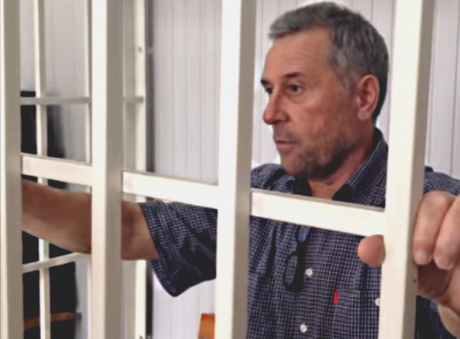
According to Ruslan Kutayev, in the years when he was active in public life, working conditions were even worse than they are now. ‘Who said that we had permission to do what we did? Who said we were allowed to do it?’ he asks. ‘We did everything in spite of them, the Chechen government, and they were sitting pretty. Now we have oppositionists like Alexey Navalny, Igor Kalyapin [Committee to Prevent Torture], Pyotr Zaikin [Titiyev’s lawyer] and Yelena Milashina [journalist for Novaya Gazeta] writing and talking about all this. But back then, there was no information coming out of Chechnya: anyone who did anything the government didn’t like was on their own against these people. So they weren’t scared, then. But at my trial we saw a crack appear in the inviolability of the Kadyrov regime.’
Igor Kalyapin, a member of the Presidential Council for Civil Society and Human Rights and Chair of the Committee against Torture and one of the people mentioned by Kutayev, does actively monitor things happening in Chechnya, but can’t engage in human rights campaigning in the republic. In 2016, he was assaulted at the entrance of the 5-Star Grozny City Hotel, where ‘local residents’ threw eggs and flour and poured green dye over him.
The Committee against Torture was one of the few organisations whose work in Chechnya was based on ‘mobile groups’ of lawyers, human rights activists and journalists. Members came from various regions and would travel to wherever their services were required at a given moment. A few days before Kalyapin’s last visit to Grozny, one such group was subjected to a violent attack when the minibus in which they were travelling to Chechnya from Ingushetia (with some foreign journalists on board) was stopped by an unidentified group of people. The travellers were dragged out onto the road and threatened and beaten, and their minibus was set alight.
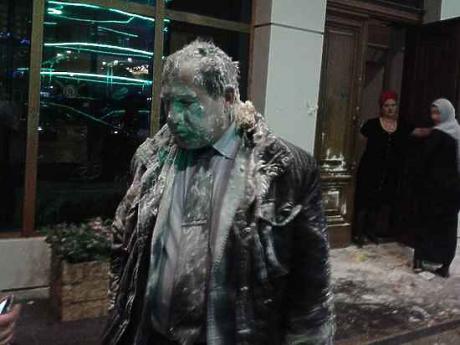
Despite the attack being caught on tape (MediaZona journalist Yegor Skovoroda managed to switch on his dictaphone) and the evidence of its victims, the attackers have still not been found. Kalyapin himself has stated more than once that the raiders came from the Chechen side of the border.
The apotheosis of terror
Oleg Orlov runs Memorial’s ‘Hot spots’ programme, and coordinates the human right centre’s work in the North Caucasus. Orlov’s first trip to Chechnya was in 1994, before the First Chechen War, when he travelled with Sergey Kovalyov, who was then Russia’s ombudsperson and head of the President’s Human Rights Commission. President Boris Yeltsin had commissioned Kovalyov to observe the return of refugees who had been displaced by the short-lived Ossetian–Ingush Conflict of late 1992.
‘When we had finished our main task, we dipped into Chechnya and discovered the horrific lack of rule of law there: bandits were attacking the Russian speaking population, taking advantage of the fact that the government of the de-facto independent Chechen Republic of Ichkeria wasn’t stopping them’, Orlov recalls. ‘We passed all the information we collected to Yeltsin, although it wasn’t used because war broke out soon afterwards. But Memorial has had a presence in Chechnya ever since.’
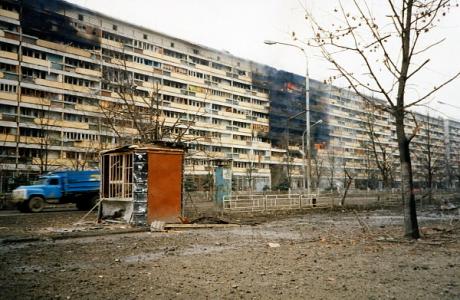
Orlov was part of Kovalyov’s observer group, representing Memorial, from the start of the war in December 1994. He tells me about the time when Memorial was setting up its network in the Caucasus: how it began by opening an office in Ingushetia, from where it could be engaged with what was going on in Chechnya. Later, the organisation had offices in Chechnya itself: in Sernovodsk, Urus-Martan, Gudermes as well as Grozny. He recalls Natasha Estemirova working with Memorial from the day it opened its office in Ingushetia.
‘We were constantly getting information about torture and the destruction of towns and villages’, he tells me. ‘We tried to publicise every instance of human rights infringement that we heard about. It was hard, both psychologically and physically — a lot of places were inaccessible because of the fighting.’ Natalya Estemirova would get caught in gunfire in the centre of Grozny itself at that time.
‘On the other hand, what made our work easier was the fact that the people in towns and villages would tell us a lot about what was happening, so we could collect objective information from the most important source — ordinary people’, says Orlov. ‘It wasn’t, of course, easy to discover how and where people died, and now it’s simply impossible. Let alone trying to find the people responsible for the killings. We could count our successes in that respect on the fingers of one hand.’
According to Orlov, the situation changed dramatically in 2009. People became less talkative. They became increasingly afraid of being victimised. And Natalya Estemirova was assassinated in that same year. ‘That was a terrible tragedy for us. Natasha was very important to us, a fantastic worker and close friend’, he tells me. ‘She was murdered because they needed to halt the active human rights work that she was at the heart of.’
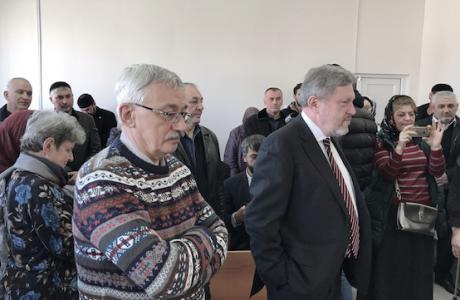
Now it’s not just the tragedies of their neighbours that people don’t want to talk about, says Orlov: they’re afraid to mention the harassment faced by their own family members. ‘Ten years ago it would have been impossible to imagine such a thing. What we see now is the apotheosis of fear. You can’t conceive of how it could get any worse.’
Chechnya’s human rights community used to look quite different. There was a whole network of organisations that would discuss the various issues and take a collective approach to the authorities. ‘We weren’t alone in Chechnya: there was a functioning civil society there’, Orlov goes on. ‘But gradually, a lot of organisations either closed down completely or remained just on paper. I can understand them: it’s awful working in the conditions we have today. Ruslan Kutayev, for example, only ended up behind bars because he organised a conference that wasn’t sanctioned by the powers that be. He was charged with possession of narcotics, and now they’re trying to pin the same charge on Oyub Titiyev. But what’s worse is when human rights campaigners are “born again”. Look at Kheda Saratova’s Obyektiv [Lens] organisation. She used to be a great friend of Natalya Estemirova, and actively worked with us. But now what has that turned into? A pro-Kadyrov propaganda machine.’
The whole of Chechnya changed soon after the end of the war. Towns were rebuilt, power was consolidated, civil society was more or less wiped out. ‘People were broken by the regime set up by Ramzan Kadyrov, in which he has almost absolute power. His power is so extensive that no one is left unaffected by it. The principle of collective responsibility that is universal in the republic creates an atmosphere of mindless terror. Whole families are made to pay for the actions of their relatives. Any criticism of the government, however mild, is severely punished, with especially close surveillance reserved for social media. Kadyrov’s regime is not just authoritarian, it is totalitarian. Chechnya’s political, social, economic and religious life has long since been subject to absolute control, including the everyday private life of the republic’s residents. In 2016, the Committee against Torture was literally thrown out of Chechnya. Violent assaults and raids on the offices of organisations that don’t toe the line have become the norm. And now it’s Memorial’s turn.’
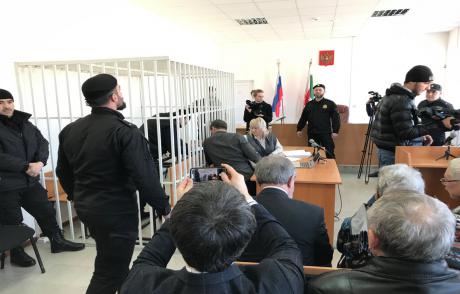
Orlov sees little distinction in this respect between Chechnya and Russia as a whole — whatever happens in the republic is just a symptom of the disease afflicting all of Russian society. ‘NGOs are being squeezed all over the country. We are accused of selling Russia’s interests, and called foreign agents. Chechnya just takes it all to extremes. And we don’t know what will happen in a few years time. We may remember 2018 as a year when we still had a certain freedom of action.’
Removing the traces
Oyub Titiyev’s case has gone quiet; his next court session will be on the eve of 9 May, Victory Day. His defence team is not optimistic: the chances are that his time in pre-trial custody will be extended, after which they will start preparing to deliver his sentence. There is practically no hope of an acquittal — only 0.4% of people who come to trial are declared innocent.
Meanwhile, Grozny’s TV station is busy filming wonderful stories about how Chechnya is flourishing — about the stability and security provided by the rule of Ramzan Kadyrov. On the screens, Kadyrov smiles modestly in response and promises never to let his motherland fall into the hands of foreign agents, as people who disagree with his government are generally known.
Fashionably dressed young ladies stroll through the centre of Grozny, and young men sit in cafés drinking tea and laughing happily as they look at someone’s Instagram account. The house in the village of Kurchaloy where we last watched our human rights activist washing his car will soon be no more: Titiyev’s house and the 38 others beside it are to be demolished and replaced with a shopping centre.
This article is a partner post written by Yekaterina Neroznikova. The original version first appeared in Open Democracy Russia, on 12 April 2018.




 12 April 2018
12 April 2018
